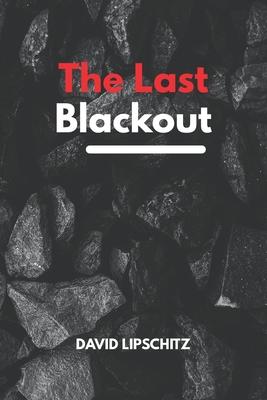What would happen if city dwellers in cities with more than 1 million people suddenly had no electricity?
David Lipschitz explores this in his exciting, electrifying, shocking, and powerful thriller, The Last Blackout. BLACKOUT It's a rainy winter's day in Cape Town. I wake up to find load shedding is happening. There was no warning, and I looked forward to breakfast with a close friend.Load shedding is our South African Electricity Utility, Eskom's name for planned power interruptions. It happens when more power stations are off than planned.
I open my EskomSePush app, and there is no news. I load Twitter and look at the Eskom feed. No news.
I go to the bathroom to wash and find no water pressure. I try to flush the toilet, which flushes but does not fill.
How odd!
I go snack something, open the fridge for some butter or milk and discover that the fridge is a bit warmer than expected. The butter is a bit soft. How long have we been off, I wonder?
I went to sleep at 9.30 pm and woke at 6 am, as usual.
I look at my phone again and realize there is no signal. This usually only happens at Stage 4 or 5, and I think that maybe it's because the generators have run out of fuel.
"Maybe we've been off since 1 am", I think.
Then I notice the eerie silence. Normally during load shedding, some people's burglar alarms go off as batteries start going flat. "Nothing?"
I switch on my laptop, with its own battery. "No internet".
I phone a friend across town who is never off at the same time as me. He's also off!
Then I phone my friends in other cities, and they're also off. I start getting worried.
I've been distracted recently by lockouts, the latest international war news, the newest possible pandemic, and I've just finished reading Vaccine Epidemic and Empire of Pain, and I've been spending too much time in confusion wondering where fake news is coming from. Is it possible that these are half-truths? True some of the time, but not all the time?
It's 7.30 am by now, and I can't get hold of my friend.
I manually open my garage door, get the car out, and think I'll meet my friend at the coffee shop. I get to the first big intersection and discover that those traffic lights, which always work, even during load shedding, are off, and traffic is beginning to build.
I'm really getting worried now. I decide to go back home and pass my local shop. They have a generator but are in darkness. Candles burn, and there's a big sign saying "50% off all cold and frozen food".
I go inside to chat to my favourite Greek Grocer, who says, "I've been here since 4 am to bake the bread, and we've been off the whole time. We're never off for more than two or three hours. And I woke up at 3.15 am for a shower, and there was no pressure. I used our backup 500-litre tank, and luckily it's raining at the moment, so it's full, but it's still a hassle to go outside and fill up the bucket. It's 8 am, and we've been off since at least 3.15 am when my phone alarm woke me. The other odd thing is that there's been no 4G or 3G or even cell phone signal the whole morning. And my office fibre line is down, and I can't get hold of my bank. The credit card machine isn't working, and I can usually phone the bank for manual authorization, but that isn't working at the moment. Most people who shop here are my friends, so I've been writing invoices, and my customers have signed IOweYou's. What do you think is happening?"
I say that I don't know, but my friend across town is also off and my friends in Durban and Joburg, who still have Telkom lines, are also off.
My friend and shopkeeper has just boiled some coffee on his gas hob (range) and is handing out steaming coffees and hot chocolate to a few of his friends and customers standing around.
That's when it hits us all.
(c)2022 David Lipschitz (P)